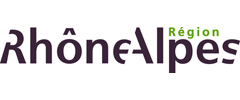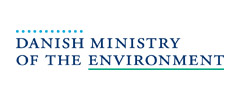Sweden’s new actions on regulating EDCs and BPA should be a model for the Rest of Europe
Exposure to toxic EDCs such as BPA can happen from many sources, which is why a comprehensive strategy has to be developed. Sweden has taken first steps towards this goal.
03.06.2013 |WECF

In a recent interview, Lena Ek, Sweden’s Environment Minister has given an overview on the current state of the topic of BPA and EDCs in Europe. In the interview she highlighted the different sources of exposure, the health-dangers, recent scientific findings and European legislative frameworks on regulating chemicals. Sweden has put the EDC-topic high on its political agenda, joining climate action as critical for the future. Regulating the use of EDCs by e.g. banning BPA if food containers for under three year olds and other measures ensures that vulnerable groups such as children experience minimized exposure. EDCs have long-standing adverse health effects, resulting already from low dosage exposure. Sweden is moving forward in regulation individually, since legislation on a European level is moving too slowly, explained Lena Ek.
France is also finalizing a national strategy to regulate EDCs which was partially influenced by WECF. Efforts to ban BPA and EDCs in toys was introduced by a petition initiated by WECF, which resulted in consultations with ministers on strategies to regulate the chemicals. Also Denmark is becoming more critical to EDCs and has suggested adding several phthalates to the current REACH list which defines chemicals that have to be phased out from use in Europe.
However, especially BPA is widely used and can be found in unexpected places. BPA is a common additive in hard plastics and is thus most often found in food containers, plastic bottles and inner can linings, leaching into the food as a contaminant. Recently, health experts also warned from BPA in tap water, from water pipes relined with epoxy, a technique commonly used across Europe to improve old plumbing instead of costly replacing the tubes. Also, regulations have to be extended to all EDCs, since substitute chemicals such as BPS in thermos paper and ink on receipts have been found to have the very same effects as BPA. The BPS contained in it even contaminates other recycled paper products, such as toilet paper. The scientific findings underpinning the negative effects of BPA and EDCs in general are growing, as acknowledged by a recent UNEP and WHO report, linking EDCs to obesity, diabetes and cancer. Yet, the BPA industry has persistently been playing down health effects, citing outdated findings and biased studies.
EDCs such as BPA, BPS and phthalates are chemicals which interfere with the body’s sensitive hormonal system, causing severe negative health effects. Those can range from higher blood pressure to obesity, mental disorders, infertility and even malformations in the reproductive tract of unborn babies. Besides the low dose effect of EDCs (low dosages of exposure already showing effect), scientists also mention the cocktail effect which has to be taken into account, with different chemicals exposed to interacting in different ways in the body.
Related News
Getting to the Future We Want
4-7 November, Brussels: European Environmental Bureau’s (EEB) Annual Conference
12.11.2018
Human Biomonitoring for Europe
Vienna, 26 September: stakeholder forum
28.09.2018
A life without plastic, wouldn't it be fantastic?!
Interview with Charlotte Schueler of @PlastikfreiLeben, who lives a zerowaste life in Munich, Germany and shares her experiences to her 25.2 thousand followers on instagram & 37.2 thousand followers on facebook
14.09.2018
Calling for periods free from plastic & hazardous chemicals
Letter to Frédérique Ries, MEP, European Parliament on behalf of the #BreakFreeFromPlastics movement
04.09.2018






































